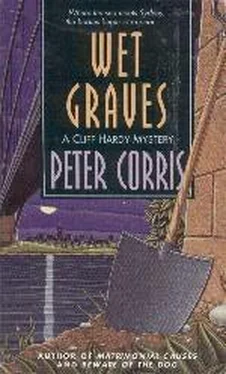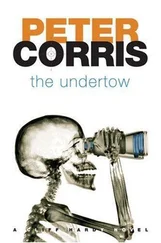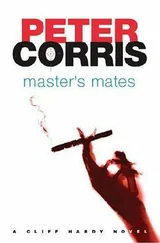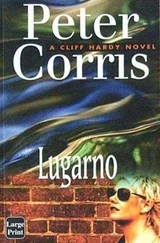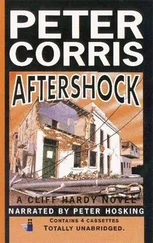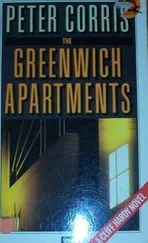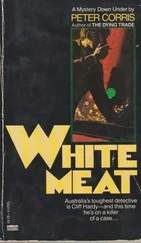Peter Corris - Wet Graves
Здесь есть возможность читать онлайн «Peter Corris - Wet Graves» весь текст электронной книги совершенно бесплатно (целиком полную версию без сокращений). В некоторых случаях можно слушать аудио, скачать через торрент в формате fb2 и присутствует краткое содержание. Жанр: Криминальный детектив, на английском языке. Описание произведения, (предисловие) а так же отзывы посетителей доступны на портале библиотеки ЛибКат.
- Название:Wet Graves
- Автор:
- Жанр:
- Год:неизвестен
- ISBN:нет данных
- Рейтинг книги:5 / 5. Голосов: 1
-
Избранное:Добавить в избранное
- Отзывы:
-
Ваша оценка:
- 100
- 1
- 2
- 3
- 4
- 5
Wet Graves: краткое содержание, описание и аннотация
Предлагаем к чтению аннотацию, описание, краткое содержание или предисловие (зависит от того, что написал сам автор книги «Wet Graves»). Если вы не нашли необходимую информацию о книге — напишите в комментариях, мы постараемся отыскать её.
Wet Graves — читать онлайн бесплатно полную книгу (весь текст) целиком
Ниже представлен текст книги, разбитый по страницам. Система сохранения места последней прочитанной страницы, позволяет с удобством читать онлайн бесплатно книгу «Wet Graves», без необходимости каждый раз заново искать на чём Вы остановились. Поставьте закладку, и сможете в любой момент перейти на страницу, на которой закончили чтение.
Интервал:
Закладка:
Getting a cab in the Rocks at half-past four in the afternoon is no easy matter, especially when a cold wind has started to blow. That’s how it was as I ran along Pump Street towards the nearest corner. No luck; a bus and some private cars threw muddy water from the recently passed street sweeper over my feet. I ran in the direction of the nearest set of lights and moved from one corner of the intersection to the other, trying to second-guess the traffic stream. It took ten minutes, but I finally grabbed a Legion cab which was stopped at the lights. I overcame the driver’s reluctance with another twenty-dollar note-Louise Madden was spending some serious money now.
As well as muggers and drunk vomiters, taxi drivers dislike passengers who don’t know where they’re going and passengers who do know and tell them street by street how to get there. I wanted the Botanic Gardens, and the only instruction I could give was, “The nearest gate”.
He dropped me opposite the old State Library building, and I battled the wind past the fountain, which wasn’t spurting, and through the gate. A newish sign inside told me that this was the Morshead Fountain gate and that the gardens this month were closed to the public at 5 p.m. I took the first path that seemed to promise a view of the bridge, almost fell on the first long set of steps and dashed past another fountain and several statues of Greek gods doing godlike things.
The sky was clear and rapidly turning pink and orange in the west as the sun sank-a good bridge-viewing sky. I had no idea of where the best vantage points would be, and the bridge itself kept disappearing behind trees as I hurried along the paths. A few people straggling up towards the south gate looked at me oddly as I bustled along. The light was fading fast, and the wind’s cutting edge seemed to get keener by the minute. I kept heading towards the higher ground, and some instinct or memory told me that keeping the duck pond and kiosk on my right was the proper thing to do.
An avenue of thick, high-reaching palms blocked my view of everything and brought visibility low to murky. Ever since an eye accident a few years ago I’ve had trouble adapting quickly to changes in light level, and the sudden brightness of direct sunrays that hit the gardens as I emerged from the avenue almost blinded me. I stopped, shaded my eyes and scanned the lawns and flower beds. For a moment I thought that a rotunda up ahead might provide a good view but then I realised that a stand of trees was in the way. I moved to the left and got a clear view through a gap in the trees. A path a little further along led towards a rise in the land and a garden bench. From the bench there would be a clear view through the trees west to the bridge. There was no one on the bench, but a shape lay on the ground beside it. I hurdled a plot of native something-or-others and ran across the grass to the bench.
He was lying on his back, very still, a thin, frail figure with a big overcoat spread out around him. The long white beard hung down below the V-neck of a torn and darned red sweater. The beard was red too, in the places where blood from the gash on his forehead had splashed onto it. His old, pale blue eyes were open and so was his mouth; a bottom denture had fallen out and the lower part of his face had a puckered, eroded look. I bent down and felt his thin wrist and put my watch face near his nose and mouth, but there was no pulse and no breath. People say things like “the body was still warm”; that doesn’t make much sense on a cold night. His hands and face were as cold as mine. I looked up and saw the bridge etched clearly against the sunset. It was the first time I’d ever seen it but Stan Livermore would never see it again.
I had no doubt that the dead men was Livermore. In the fading light I could see a lot of blood on the grass, but no signs of a struggle or a weapon. There was more blood and a few hairs on the edge of the bench; a cloth cap lay on the grass a few feet from the body. A pair of spectacles was half-covered by the spread skirt of the overcoat. A fall, then? An old, near-sighted man lost his footing, fell and struck his head? Happens every day. I looked up as a uniformed man came running along the path in the direction opposite from the way I’d come. He was heavy, red-faced and breathless when he reached the spot.
“Oh, gawd,” he said, “it’s old Stan.”
I straightened up. “You know him?”
“Yeah.” He pulled down the waistband of his uniform jacket, which had ridden up as he ran. The jacket had flashes bearing the word ‘Ranger’ sewn onto the sleeves and the breast pocket. “I know him. Well, we just call him old Stan. Don’t know his full name. Comes in every night to watch the sun going down behind the bridge. Done it for years. Poor old bugger must’ve taken a tumble.”
He peered at the bench and saw the blood. Then he unhooked a walkie-talkie from his belt and put in a call for an ambulance.
“He’s dead,” I said.
“Just following procedure, sir. Could I have your name, please?”
It was the walkie-talkie that did for me. If he’d had to go off somewhere to sound the alert I might have faded into the distance, but what could I do with him standing there, all ‘Ranger’ flashes, note-book and self-importance? I gave him my name and he lit a cigarette and we waited in the gathering dark. I looked west and the bridge changed from a dark, abstract outline to a big, simple piece of machinery as the lights came on.
9
There was just enough room on the path for the ambulance. The paramedics agreed with me and the ranger that the poor old bugger was dead. Then the cops arrived- plenty of space for them. They parked so that their headlights played over the scene, and after a fairly brief look around and collections of items such as the glasses and cap, they told the paramedics to take the corpse away. It all seemed a bit perfunctory to me, but it turned out that the senior constable knew old Stan too, and he was satisfied with the “fell and hit head” explanation.
“And what were you doing in the gardens, Mr Hardy?” he asked. “Just taking a walk,” I said. “Funny time of day for a walk.”
“I had things to think about, constable.” Satisfied was the senior constable’s middle name. He nodded, copied down the name and address from my driver’s licence ind told me that I should accompany them to the Woolloomooloo police station to sign my statement.
“I haven’t made a statement.”
The senior looked at his colleague, who read from his notebook using his torch to read his notes. “I can take shorthand, Mr Hardy. Your name is Cliff Hardy, I have your address as it appears on your driver’s licence. You were taking a walk in the Botanic Gardens at approximately 4.45 pm, and you discovered the body of a man identified as Stan Livermore.”
“That’s right. I’m impressed.”
“Just accompany us to the station, sir,” the senior said. He turned to the ranger. “And you too, sir, if you don’t mind.”
The ranger seemed to enjoy the ceremony; he spoke briefly into his walkie-talkie, and then we climbed into the back of the police car and drove slowly along the paths to the Victoria Lodge gate.
“I’m going to be late home,” the ranger said.
I was playing the role of a solid, minding-my-own-business citizen. “Me, too,” I said.
The constable was doing the driving, the senior was doing the investigating. “Did Stan have a family, d’you know?” he asked.
If it was a trap for me it was too obvious. I said nothing and let the long, pale grey shape of a warship docked opposite the Boy Charlton pool take my attention.
“Doubt it,” the ranger said. “How long’s this going to take?”
The senior shifted in his seat to let the pistol on his hip settle more comfortably. “Step on it, Charlie,” he said. “The gentle-men want to get home for their tea.”
Читать дальшеИнтервал:
Закладка:
Похожие книги на «Wet Graves»
Представляем Вашему вниманию похожие книги на «Wet Graves» списком для выбора. Мы отобрали схожую по названию и смыслу литературу в надежде предоставить читателям больше вариантов отыскать новые, интересные, ещё непрочитанные произведения.
Обсуждение, отзывы о книге «Wet Graves» и просто собственные мнения читателей. Оставьте ваши комментарии, напишите, что Вы думаете о произведении, его смысле или главных героях. Укажите что конкретно понравилось, а что нет, и почему Вы так считаете.
